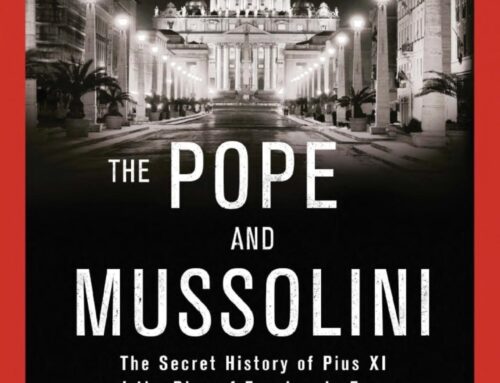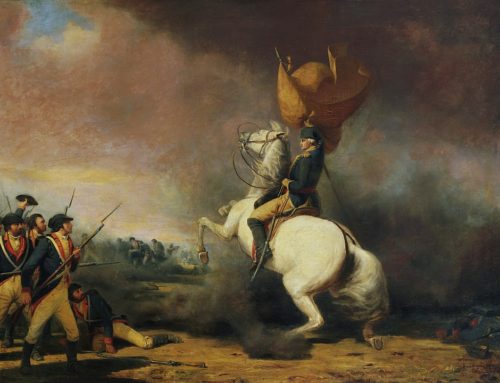Introduction
After reading The Washing War: FDR’s Inner Circle by James Lacey I feel there is sufficient explicit and implicit facts to charge key State Department and Army officials that they “acquiesced in the Murder of Jews During World War II.”
While the initial part of this essay focuses on Breckinridge Long, it is well known that patrician members of the State Department harbored anti-Semitic views. Possibly, the only pro-Semitic member of the State Department was Sumner Wells, the number 2 person. Secretary of State Cordell Hull (1933-1944) while not a promoter of anti-Semitic policies did not take effective steps on behalf of Jews.
Henry Morgenthau Jr., a close friend of FDR and the only Jewish member of his cabinet, was a forceful advocate for the government taking steps to save Jews. He unsuccessfully lobbied Breckinridge Long, John McCoy, and Cordell Hull to take effective action. His efforts belatedly led to the creation of the War Refugee Board in 1944 that possibly saved 200,000 Hungarian Jews.
At the end of 1943, Treasury general counsel, Randolph Paul, and the Secretary’s assistant Josiah E. DuBois Jr. wrote a memorandum, “Report to the Secretary on the Acquiescence of This Government in the Murder of the Jews”, which said the State Department was “guilty not only of gross procrastination and willful failure to act, but even of willful attempts to prevent action from being taken to rescue Jews from Hitler”.
Role of President Franklin Roosevelt on Jewish Question
I believe there is sufficient evidence to argue that Franklin Roosevelt was unwilling to take effective action to save the Jews. While FDR had many personal Jewish friends, he was unwilling to use his influence to block effectively the anti-Semitic policies of the State Department and the Armed Services.
Roosevelt and Hull knew about the Holocaust and never ordered any physical steps to save European Jewry. For example, the air force could have bombed Auschwitz and the railroad tracks leading to it. The reasons given for not bombing do not stand up to scrutiny. Moreover, after getting first hand evidence of the holocaust the State Department for months prevented the information from being widely spread to other organs of government, the Press, and Congress.
There are several examples where Jewish leaders such as Rabbi Stephen Wise met with FDR to personally discuss the holocaust. FDR was very cordial in these meetings but committed to no action. Wise provided the report by several people who escaped Auschwitz about the horrors of the camp!
By contrast, Eleanor Roosevelt repeatedly took steps to help Jews and intervened personally to increase the number of Jewish refugees entering the United States.
The defense of FDR and army officials is that taking action to save Jews would have delayed winning the war. In fact, allies bombed areas 5 miles from Auschwitz. Certain generals such as George Patton harbored viciously anti-Semitic views.
Role of Breckinridge Long (America’s Adolph Eichmann) (1881-1958)
Breckinridge Long
Lacey highlights the infamous role of Samuel Breckinridge Long (1881-1958) as the principal perpetrator of anti-Semitic policies. Breckinridge worked at the state department starting in 1917 until his resignation in November 1944.
Over that time he developed close relationships with Woodrow Wilson and Franklin Roosevelt. He came up with the slogan “he kept us out of war.” This slogan was helpful in Wilson’s reelection in 1916.
Breckenridge developed a close relationship with Franklin Roosevelt when the later served as Assistant Secretary of the Navy. He generously contributed to FDR’s 1932 Presidential campaign. In 1940 FDR appointed Breckenridge Long Assistant Secretary of State. He was the primary official in charge of immigration. In that role, he fabricated stories that the Nazis had infiltrated Jewish organizations to stop increased Jewish immigration. He also falsely claimed that Jewish immigrants committed widespread criminal actions.
In an intra-department memo he circulated in June 1940 Long wrote: “We can delay and effectively stop for a temporary period of indefinite length the number of immigrants into the United States. We could do this by simply advising our consuls to put every obstacle in the way and to require additional evidence and to resort to various administrative devices which would postpone and postpone and postpone the granting of the visas.”
One of his most powerful tools to keep out potential refugees and immigrants was the Public charge rule, which barred admissions of persons deemed likely to become a burden on the state. The standards of proof of not being a public charge were constantly shifting, and this was used to intentionally prevent refugees and immigrants from gaining admission.
Ultimately, the effect of the immigration policies set by Long’s department was that, during American involvement in the war, ninety percent of the quota places available to immigrants from countries under German and Italian control were never filled. If they had been, an additional 190,000 people could have escaped the atrocities being committed by the Nazis.[6]
In November 1943, when the House was considering two bills that would have established a separate government agency charged with assisting the rescue of Jewish refugees, Long gave secret testimony to the House Foreign Affairs Committee saying that the majority of 580,000 refugees admitted from Europe were Jewish, and that such legislation would be a rebuke of the State Department in wartime. Historians have noted his testimony was misleading because he implied that all of those were Jews.
Long became the major target of criticism of America’s refugee and rescue policy.” He justified this in his diary by referencing the contemporary strict laws in the United States imposing quotas on the number of immigrants from particular countries, and his great concern about the possibility that Germany and the Soviet Union would introduce spies or subversive agents into the United States amidst the large numbers of refugees. FBI Director J. Edgar Hoover dismissed Long’s arguments.
Long resigned from the State Department in November 1944 and went into retirement.
Henry Morgenthau Jr., the only Jewish member of FDR’s cabinet and a close friend of FDR, screamed at Long that he was an “anti-Semite.”
A Report on the Murder of Jews
On January 13, 1944, US Secretary of the Treasury Henry Morgenthau, a close friend and advisor of President Franklin Roosevelt and one of the top Jewish officials in the administration, received a memo prepared by a Treasury Department lawyer, Josiah DuBois, and signed by his superior, Randolph Paul, that discussed the murder of the Jews in Europe. That memo stated, in part:
This [United States] Government has for a long time maintained that its policy is to work out programs to save those Jews of Europe who could be saved. I am convinced on the basis of the information which is available to me that certain officials in our State Department, which is charged with carrying out this policy, have been guilty not only of gross procrastination and willful failure to act, but even of willful attempts to prevent action from being taken to rescue Jews from Hitler. . ..
Unless remedial steps of a drastic nature are taken, and taken immediately, I am certain that no effective action will be taken by this Government to prevent the complete extermination of the Jews in German-controlled Europe, and that this Government will have to share for all time responsibility for this extermination.
The full memo described actions by the State Department both before and during the war that had routinely kept Jewish refugees from entering the United States by demanding documents that were unobtainable in wartime and blocking any effort to “cut red tape” to allow more refugees into the nation. The State Department had also discouraged religious and human rights groups that needed government support for their efforts to aid and rescue Jews.
Morgenthau condensed the report and sent it to Roosevelt. Then he brought a specific plan to the president at a private Sunday-morning meeting: he wanted the United States to actively pursue the rescue of Jews. He did not have to remind the president that 1944 was an election year and the behavior of the State Department might be seen by voters as scandalous. A few days later, the president set up the War Refugee Board, under Morgenthau’s supervision.
The War Refugee Board provided crucial support and coordination to Jewish organizations, diplomats, and resistance groups across Europe that were trying to rescue Jews and help those in concentration camps. In all, it saved about 200,000 Jews from annihilation.
John Pehle, Jr., the man who headed the board, later said that “what we did was little enough. It was late. Little and late, I would say.”
War Refugee Board
John Pehle
The immediate cause for Roosevelt’s action was pressure from the staff of the Treasury Department’s office of Foreign Funds Control and its chief, John W. Pehle.
Pehle’s office had authorized a number of charitable groups to use funds in the U.S. regulated under the Trading with the Enemy Act to pay for food, medicine, and other aid to refugees and other civilian victims of the war in Europe. Those efforts were systematically blocked by some officials in the U.S. State Department.
Various State Department officials delayed the license for the next five months. Treasury officials, led by a staff lawyer, Josiah E. DuBois, Jr., investigated how and why the license had been held up. In their research, which was aided by some whistleblowers in the State Department, they discovered that in addition to blocking licenses for use of money to aid refugees, the State Department had also sent foreign missions orders not to forward information about Nazi atrocities—specifically about the Holocaust—to Washington. At the end of 1943, DuBois wrote a memorandum, “Report to the Secretary on the Acquiescence of This Government in the Murder of the Jews”, which said the State Department was “guilty not only of gross procrastination and willful failure to act, but even of willful attempts to prevent action from being taken to rescue Jews from Hitler”.
Specifically, in July 1943, the Treasury Department issued a license to the World Jewish Congress to use funds in the United States to pay some of the costs of evacuating Jews from Romania and France. (This should not be confused with another initiative, by the Romanian government, to “sell” Jews for approximately $50 a head, with which it had no connection.) The State Department effectively blocked this rescue effort.
The War Refugee Board, established by President Franklin D. Roosevelt in January 1944, was a U.S. executive agency to aid civilian victims of the Axis powers. The Board was, in the words of historian Rebecca Erbelding, “the only time in American history that the US government founded a non-military government agency to save the lives of civilians being murdered by a wartime enemy.”
Eleanor Roosevelt, famous Hollywood and Broadway personalities and other prominent citizens pressed FDR to do something. President Roosevelt acted after considerable additional pressure from his friend, Secretary of the Treasury Henry Morgenthau, Jr. and his team at the Treasury. Roosevelt “stressed that it was urgent that action be taken at once to forestall the plan of the Nazis to exterminate all the Jews and other persecuted minorities in Europe
The State Department used various excuses, delaying permission until December, a full eight months after the program was first proposed. Josiah DuBois also found evidence that the State Department had actively tried to suppress information about the murder of the Jews from reaching the United States.
When the Treasury staff learned about the State Department’s obstructions, they wrote a report entitled Report to the Secretary on the Acquiescence of this Government to the Murder of the Jews, first drafted by DuBois. The report was written to convince Morgenthau that it was time to go to the President with their complaints. Morgenthau, John Pehle, and Randolph Paul met with Roosevelt on January 16, 1944. He agreed to create the War Refugee Board, issuing Executive Order 9417.
Raoul Wallenberg
Credited with rescuing tens of thousands of Jews from Nazi-occupied countries, through the efforts of Raoul Wallenberg and others, the War Refugee Board is the only major effort undertaken by the United States government to save the lives of Jews during the Holocaust.
Conclusion
Sadly, the popular myth is that both in the army and state department there was widespread horror when the concentration camps were discovered in 1945. In fact, the existence of the camps was well known as early as 1942. Moreover, Jews were treated very shabbily after World War II. Although not killed, many Jewish survivors remained in concentration camps for many years following World War II.
In recognition of the horrible treatment of Jews following World War II, President Harry Truman authorized Earl Harrison to make an extensive study of the conditions of Jews in post-World War II. The Harrison Report that identified the disreputable conditions that Jews faced led to Truman demanding that immediately 100,000 Jewish survivors be admitted to Palestine. The British under Prime Minister Clement Attlee responded negatively, arguing that Truman was succumbing to Zionist pressure.



